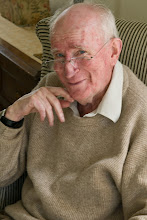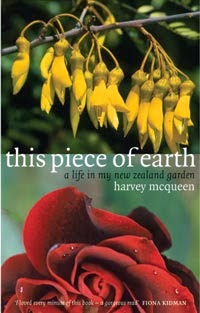Eating alone in a foreign city
When I travel abroad now, I inevitably spend some time on my
own – a few days, a week - in unfamiliar cities. I really don’t mind during the
day, and mostly I really enjoy myself. In many ways it’s easier being able to
do exactly what I choose, without having to negotiate with anyone else. But in
the evening there is always the problem of dinner.
For me, going out to eat every
night in a strange city is a tricky business. As a woman alone, with poor night
vision and a dim sense of direction, I don’t like to stray too far from my hotel
after dark, and I need well-lit streets with plenty of people around.
I could of course use taxis, but
that would require a special destination worth the effort. On my own, that’s
not what I’m after. I’m not chasing Michelin stars or tracking down the nasty
bits. I want a modest menu featuring local dishes that are appealing and
interesting without being utterly unfamiliar. At least two courses, not too
expensive, and preferably eaten alongside at least some local people, rather
than solely other foreign tourists.
But other things matter too. One problem with the kind of travel where I’m
not staying in houses of any kind, with kitchens, is that it’s always necessary
to go out for dinner. After a while,
that can seem like a chore rather than a pleasure. The right place to go will
be somewhere I can return to over
several nights. I want a small sense of comfort, of being accepted, so that I
can feel at least a little known and at home.
In Barcelona the nearby streets were a little
too smart. I ate well enough, more than once at the bright theatre restaurant
with the marvellous name of El Glop. It served simple, filling Catalan dishes
such as sausage and beans, the waiters dealt efficiently and for the most part
kindly with me, and I enjoyed my toasted bread, main course and glass of wine
each night. But it was simply food.
In Madrid everything changed. By then I had got
my bearings a little better with Spanish food in general; and I was very pleased
to find that unlike Barcelona ,
many of the local restaurants served a well-priced menu of the day at night,
not just at lunchtime. So the first afternoon, I tried searching on the net for
well-reviewed restaurants near my hotel.
One stood out straight away: La
Sanabresa. It seemed to be only a few minutes’ walk away, straight up the main
street and down a side lane with the memorable name of Calle Amor de Dios - Love
of God Street. But just to be sure, I set off to find it in daylight. It was plain and unpretentious, and the menu in
the window looked promising – it seemed to be the nearest thing I’d found to
Spanish home cooking.
I
went back at exactly 8.30, when it opened for dinner. In my experience, no
waiter or maitre d’ looks pleased to see a lone diner, but in a still fairly
empty restaurant they usually seat you without any fuss. And I know better than to commandeer one of
the romantic little window tables clearly designed for couples.
In Lyon once, the proprietor of an almost empty restaurant
told me bluntly that he had no tables for one.
Of course not, I said, in my perfectly presentable French, but there are
plenty of tables for two, and I am a widow. But if I give you one of those, he
said, a couple might arrive and want it.
I was so taken aback at this rare burst of rudeness and rejection that I
turned and walked out. Too late, I realised what I should have said: “J’espère, Monsieur, que lorsque votre
femme sera veuve, elle ne tombera jamais sur un restaurateur comme vous.” I hope, monsieur, that when your wife becomes a widow, she
never comes across a restaurant owner like you.
No
such shocks at La Sanabresa. With a wave
of his hand, the magnificently moustached waiter invited me to sit where I
liked. The table I chose was wedged neatly between two larger tables, and I
could sit with my back to the wall looking out into the room and observing everyone
else.
To my
great pleasure, all the entrees were vegetables. I chose the garlic mushrooms,
the meatballs, and the flan. Then I
turned to the wine list and asked for a glass of rioja. The waiter (who had very little English) held
up his hand, and pointed to the words I had missed: the 11 euro menu included not only three
courses and bread, but also half a bottle of wine. Tinto, blanco? Tinto, definitely. He looked approving, and dashed away to see
to it.
Just
as well I had arrived on time. By now the restaurant was rapidly filling up
with locals – mostly groups of friends, with a sprinkling of couples and a few
other solitary diners. The mushrooms
were excellent, the meatballs a little bland but still interesting, and the
flan – which turned out to be my favourite crème caramel – was perfect: rich,
smooth and darkly sauced. And the wine
was perfectly drinkable. Everyone, including me, seemed to enjoy their dinners
immensely. By the time I left, I’d
worked out what I was going to have next time, partly on the basis of what I’d
seen arrive at the neighbouring tables.
Again
I made sure to arrive promptly, and the waiter ushered me straight to the same
table. He seemed pleased to see me. I
knew very well that as a passing tourist, even a returning one, I was just a
tiny blip on the steady radar of his regulars. And yet I wanted him to like me,
to approve of my choices, to appreciate me.
One
thing I think he really did appreciate was my decisiveness – no confused tourist
dithering. Grilled asparagus, grilled
dorado with salad, bianco. Dessert was more of a dilemma. Should it be the flan
again, since it was so good? Or (in the interests of research) should I try the
torta de queso, cheesecake, which I envisaged as some rustic Spanish
version?
The cheesecake turned out to be a mistake - a small slice
of some spongy, creamy confection topped with raspberry glaze, obviously bought
in. I should have asked if it was casero (the equivalent of French maison). To
offset this disappointment, I had to buy two little shortbreads from the
still-open bakery on the way home, to munch in my room with Lady Grey
tea.
Because that's what happens on holiday by yourself -
every small success or good decision is magnified, and so is every small
mistake. Wrong: Bypassing the hake with
green sauce for what turned out to be a rather boring cod and orange salad in Cordoba
On the third night I was feeling slightly off-colour, so
something fairly plain was called for: thin crisp eggplant fritters with lemon,
and roast pork with mashed potato - always my favourite comfort food, and Harvey
At the next table, two young Japanese (yes, there were
some – they read Tripadvisor too) were having trouble with the menu. So I
offered to help, and the waiter thanked me. At the end I splashed out on a
small decaf espresso, and asked him if I could take his photo. He took the
camera from me, handed it to the Japanese couple and bent down beside me so
they could take us both. In my fragmentary Spanish I managed to tell him (I
think) that I would come for one more night, and then I had to leave.
On my last night I had roasted red peppers with garlic
and flakes of tuna, excellent cod in tomato sauce, and house made tiramisu. But
the main courses I had been ordering from the 11 euro menu had migrated to the
13 euro one - still a great deal. Perhaps this was because it was Friday, which
seemed to be family date night: there were more tables for two or four, filled
with middle aged couples and small family groups.
My waiter dealt with them all with his usual speed and
aplomb. And I learnt his name – Joaquín. He proudly brought over a
laminated copy of a 2003 piece by the restaurant critic for the New York Times. It praised the
restaurant handsomely, and paid special tribute to him and his moustache.
I told him
my name too, and when I stood up to go we shook hands. He came with me to the
door, I managed to say "Adios, mi amigo”, and he embraced me. I turned for
home (well, the hotel) feeling pleasurably sad.
Then he came
rushing out after me, saying "Sorry!" I had forgotten my scarf. Real life endings
are never quite like the movies.





I imagined I was there Anne. Lovely to read about some of your time in Spain
ReplyDeleteYou are such a wonderful writer Anne Else. transported me for several minutes. Thank-you.
ReplyDeleteEileen B